Associations to the word «Leaf»
Noun
- Chewing
- Sap
- Acacia
- Blossom
- Player
- Raspberry
- Petal
- Epithet
- Bark
- Goal
- Volt
- Pathogen
- Ranger
- Nut
- Fungus
- Mite
- Carrot
- Insect
- Tesla
- Evergreen
- Juniper
- Raptor
- Mahogany
- Shutter
- Feeder
- Vine
- Shrub
- Organization
- Conifer
- Miner
- Team
- Merit
- Cup
- Forage
- Rot
- Cinnamon
- Pest
- Codex
- Wreath
- Lotus
- Appendage
- Fly
- Decoration
- Beech
- Infusion
- Crevice
- Feeding
- Invertebrate
- Coil
- Longevity
- Tomato
- Cucumber
- Spore
- Lichen
- Arthropod
- Tea
- Oiler
- Cm
- Sprout
- Poplar
- Tip
- Plant
- Spp
- Mulberry
- Turnip
- Lime
Adjective
Adverb
Pictures for the word «Leaf»

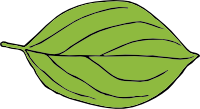 Leaf
Leaf
 Leaf
Leaf
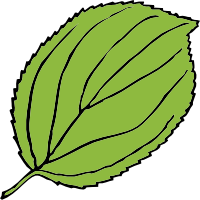 Leaf, Serrate leaf
Leaf, Serrate leaf
 Leaf, Sheet, Paper
Leaf, Sheet, Paper
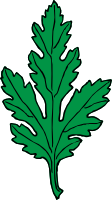 Leaf
Leaf
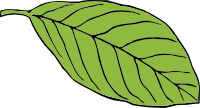 Leaf
Leaf
 Oak leaf, Leaf
Oak leaf, Leaf
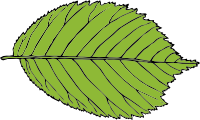 Double-serrate leaf, Leaf
Double-serrate leaf, Leaf
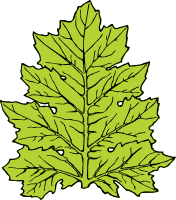 Leaf, Acanthus
Leaf, Acanthus
 Lanceolate, Leaf
Lanceolate, Leaf
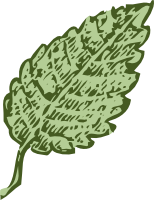 Leaf
Leaf
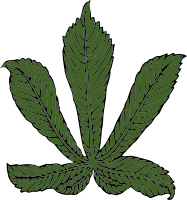 Leaf, Horse chestnut leaf
Leaf, Horse chestnut leaf
 Leaf, Sheet
Leaf, Sheet
 Leaf, Sheet, Paper
Leaf, Sheet, Paper
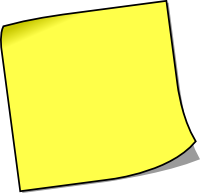 Leaf, Sheet, Paper
Leaf, Sheet, Paper
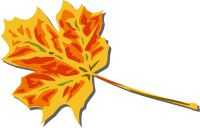 Leaf, Fall leaves
Leaf, Fall leaves
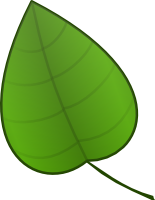 Leaf, Green
Leaf, Green
 Turn over, Leaf
Turn over, Leaf
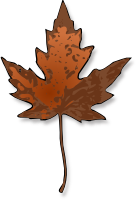 Maple leaf, Leaf
Maple leaf, Leaf
 Leaf, Sheet, Page
Leaf, Sheet, Page
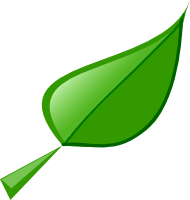 Leaf, Blade
Leaf, Blade
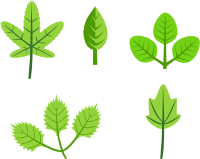 Leaf, Leaves
Leaf, Leaves
 Paper, Leaf
Paper, Leaf.png)
.png) Palmate, Leaf, Palmate leaf
Palmate, Leaf, Palmate leaf
 Leaf, Sheet
Leaf, Sheet
 Page, Leaf, Sheet
Page, Leaf, Sheet
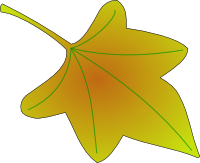 Wine, Leaf
Wine, Leaf
 Leaf, Sheet
Leaf, Sheet
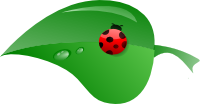 Leaf, Ladybug, Ladybird
Leaf, Ladybug, LadybirdWiktionary
LEAF, noun. The usually green and flat organ that represents the most prominent feature of most vegetative plants.
LEAF, noun. Anything resembling the leaf of a plant.
LEAF, noun. A sheet of any substance beaten or rolled until very thin.
LEAF, noun. A sheet of a book, magazine, etc (consisting of two pages, one on each face of the leaf).
LEAF, noun. (in the plural) Tea leaves.
LEAF, noun. A flat section used to extend the size of a table.
LEAF, noun. A moveable panel, e.g. of a bridge or door, originally one that hinged but now also applied to other forms of movement.
LEAF, noun. (botany) A foliage leaf or any of the many and often considerably different structures it can specialise into.
LEAF, noun. (computing) (mathematics) In a tree, a node that has no descendants.
LEAF, noun. The layer of fat supporting the kidneys of a pig, leaf fat.
LEAF, noun. One of the teeth of a pinion, especially when small.
LEAF, verb. (intransitive) To produce leaves; put forth foliage.
LEAF APHID, noun. Any of several species of aphid that feed on leaves of a specific range of plants, not necessarily limited to those in their name or names.
LEAF BEETLE, noun. Any of very many brightly-coloured beetles, of the family Chrysomelidae, that feed on plant leaves.
LEAF BEETLES, noun. Plural of leaf beetle
LEAF BLOWER, noun. A motorised garden tool that propels air out of a nozzle to move leaves and other debris.
LEAF BLOWERS, noun. Plural of leaf blower
LEAF BRIDGE, noun. A drawbridge having a platform or leaf which swings vertically on hinges.
LEAF CACTI, noun. Plural of leaf cactus
LEAF CACTUS, noun. Either of two genera in the family Cactaceae: Epiphyllum and Pereskia.
LEAF CASTING, noun. A process in which damaged paper is repaired by means of wetting the old paper in a cast and concurrently aging pulp to the damaged part or parts.
LEAF CURL, noun. Any of several plant diseases, caused by diverse fungi or viruses, characterized by curling of leaves.
LEAF CUTTER, noun. Alternative spelling of leaf-cutter
LEAF FAT, noun. The layers of fat that support the kidneys of a pig
LEAF FROG, noun. Any tree frog of the subfamily Phyllomedusinae.
LEAF FROGS, noun. Plural of leaf frog
LEAF GAP, noun. (botany) A gap or break in the central cylinder of vascular tissue within a plant's stem, caused by the extension of the tissue as a leaf trace.
LEAF GAPS, noun. Plural of leaf gap
LEAF GREEN, noun. A bright green like the usual colour of leaves.
LEAF GREEN, adjective. Alternative spelling of leaf-green
LEAF HOPPER, noun. Alternative spelling of leaf-hopper
LEAF HOPPERS, noun. Plural of leaf hopper
LEAF INSECT, noun. Any of the insects in the family Phylliidae, which mimic leaves.
LEAF INSERTION, noun. (botany) In liverworts, the angle and orientation of the plane of the leaves with respect to the axis of the stem.
LEAF LARD, noun. The internal fat of a pig, separated in leaves or masses from the kidneys, etc.
LEAF LARD, noun. (US standard of identity) White lard made from fresh, clean, sound leaf (abdominal) fat of swine, reasonably free of blood, free of foreign odors and tastes, and having not more than set maxima of potassium hydroxide, peroxide, moisture, volatile matter, and insoluble impurities.
LEAF MINER, noun. An insect larva that lives within leaf tissue.
LEAF MINERS, noun. Plural of leaf miner
LEAF MOLD, noun. Decomposed or composted remains of leaves.
LEAF MOLD, noun. Soil consisting principally of layers of decomposed leaves.
LEAF MUSTARD, noun. Mustard greens
LEAF NODE, noun. (botany) One of the spots upon a stem where buds and intercalary meristems occur, usually marking the end of a season's growth.
LEAF NODE, noun. (comptheory) A node, in a tree, that has no children.
LEAF OUT, verb. (intransitive) (of a plant) To open its buds
LEAF PEEPER, noun. (US) (slang) A tree sightseer, who enjoys to observe the color change in their leaves, especially in the autumn.
LEAF PEEPERS, noun. Plural of leaf peeper
LEAF PROTEIN, noun. (countable or uncountable) A protein found in leaves extracted for use as a food for humans.
LEAF PROTEIN CONCENTRATE, noun. Concentrated leaf protein used as a food for human beings.
LEAF PROTEINS, noun. Plural of leaf protein
LEAF ROLLER, noun. The caterpillar of a tortrix moth (Torticidae family), a pest that infests plants and rolls up their leaves.
LEAF SHEATH, noun. (botany) A structure at the base of a leaf's petiole that partly surrounds or protect the stem or another organ that it subtends.
LEAF SIGHT, noun. A hinged sight on a firearm, which can be raised or folded down.
LEAF SPOT, noun. (botany) Any of various fungal or bacterial diseases of plants that cause blemishes on their leaves.
LEAF SPRING, noun. A spring in the form of a curved length of steel, used in the suspension of wheeled vehicles.
LEAF SPRINGS, noun. Plural of leaf spring
LEAF STORM, noun. Alternative spelling of leafstorm
LEAF STORMS, noun. Plural of leaf storm
LEAF THROUGH, verb. (transitive) To turn the pages of (a book) rapidly reading short sections at random.
LEAF TRACE, noun. (botany) An extension of vascular tissue from a plant's stem into a nearby leaf, resulting in a leaf gap in the plant's stele.
LEAF TRACES, noun. Plural of leaf trace
LEAF TURTLE, noun. The Asian leaf turtle (Cyclemys dentata).
LEAF TURTLE, noun. Any turtle in genus Cyclemys.
LEAF TURTLE, noun. Certain similar turtles in subfamily Geoemydinae.
LEAF TURTLES, noun. Plural of leaf turtle
LEAF VALVE, noun. A valve which moves on a hinge.
LEAF VEGETABLE, noun. The leaf of a plant used as an edible vegetable, such as the lettuce, spinach, or rocket (Eruca sativa or Eruca vesicaria.).
LEAF WARBLER, noun. A small insectivorous bird of the genus Phylloscopus.
Dictionary definition
LEAF, noun. The main organ of photosynthesis and transpiration in higher plants.
LEAF, noun. A sheet of any written or printed material (especially in a manuscript or book).
LEAF, noun. Hinged or detachable flat section (as of a table or door).
LEAF, verb. Look through a book or other written material; "He thumbed through the report"; "She leafed through the volume".
LEAF, verb. Turn over pages; "leaf through a book"; "leaf a manuscript".
LEAF, verb. Produce leaves, of plants.
Wise words
Abuse of words has been the great instrument of sophistry
and chicanery, of party, faction, and division of society.